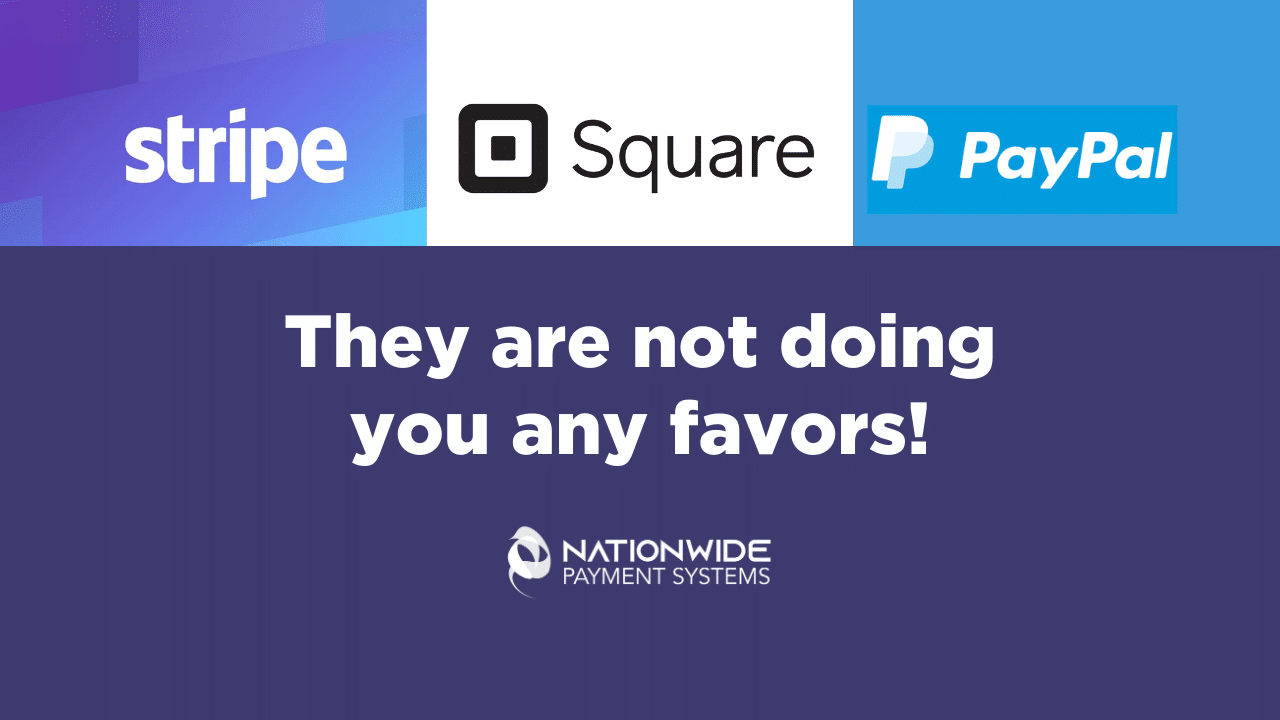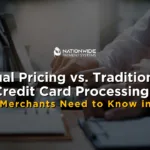The Case for Interchange Pass-Thru Variable Pricing

Stripe, Square, and PayPal are not doing you any favors!
In the realm of payment processing, businesses often find themselves at a crossroads when choosing between popular platforms such as Stripe, Square, PayPal, and Toast, which typically charge a flat rate, and the potential benefits of opting for Interchange pass-thru variable pricing from Nationwide Payment Systems. The decision-making process involves weighing the advantages and drawbacks of each approach, particularly in terms of cost-effectiveness and compliance with regulations such as the Durbin Amendment. Understanding the Pricing Structures When considering payment processing solutions, businesses must evaluate the pricing structures offered by different providers. Payment service providers offer various pricing models, including interchange-plus, flat-rate, or tiered pricing. The choice of pricing structure is influenced by factors such as the industry, sales volume, and specific business priorities.
Comparing Flat Rates and Interchange Pass-Through Variable Pricing
Providers like Stripe, Square, PayPal, and Toast charge flat rates for transactions, ranging from 2.69% to 3.5% or more, depending on the specific terms and conditions. On the other hand, Nationwide Payment Systems offers Interchange pass-through variable pricing, allowing businesses to benefit from the special debit card rates stipulated by the Durbin Amendment. This includes a significantly lower rate of 0.05% and 0.22 cents per transaction for debit cards, presenting a compelling opportunity for businesses to drive down their cost of payment acceptance.
The Durbin Amendment and Cost Savings
The Durbin Amendment, a provision of the Dodd-Frank Wall Street Reform and Consumer Protection Act, mandates that debit card interchange fees be reasonable and proportional to the cost incurred by the issuer. This regulation has led to the establishment of special rates for debit cards, offering businesses the potential to realize substantial cost savings on payment processing. By leveraging the lower interchange fees for debit card transactions, companies can effectively reduce their overall expenditure on payment acceptance, mainly if they process over $25,000 a month.
Considerations for Business Owners Business owners are encouraged to carefully assess their monthly transaction volumes and the nature of their customer base to determine the most advantageous payment processing solution. While providers like Stripe, Square, PayPal, and Toast offer simplified pricing structures, businesses with higher transaction volumes may find that the “Durbin” debit card rates from Nationwide Payment Systems could result in significant cost savings. It is essential for businesses to be aware of the potential benefits of interchange pass-thru variable pricing and to consider whether it aligns with their specific operational and financial requirements.
Are you ready to take the leap and get educated and learn about variable pricing? Deciding to opt for a payment processing solution involves thoroughly evaluating the pricing structures, transaction volumes, and regulatory considerations. While providers like Stripe, Square, PayPal, and Toast offer convenience and simplicity through their flat-rate pricing, businesses with substantial transaction volumes stand to benefit from exploring the potential cost savings offered by Interchange pass-thru variable pricing from Nationwide Payment Systems, particularly in light of the favorable rates for debit card transactions mandated by the Durbin Amendment. Owners can effectively manage their payment acceptance costs and optimize their financial performance by making informed decisions based on their unique business needs.








